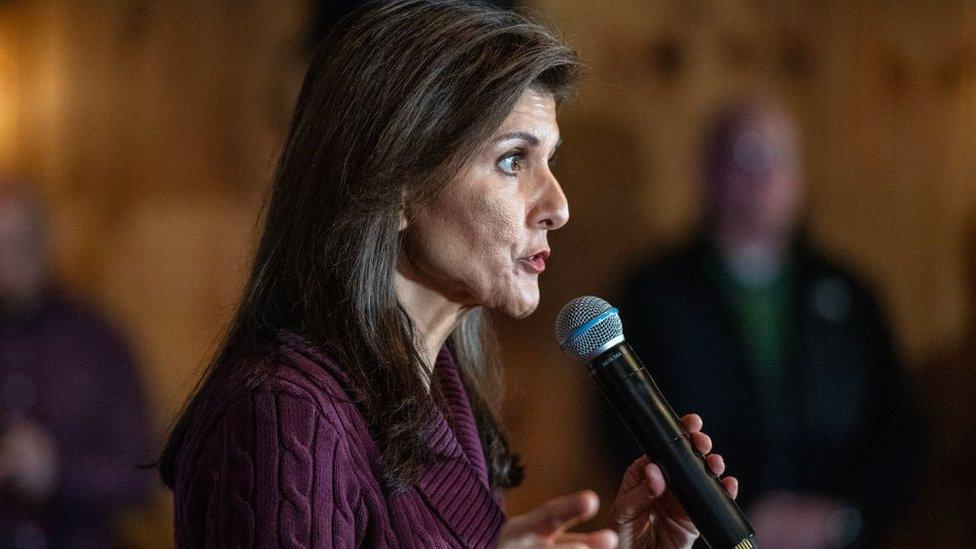Nevada caucuses or primary: Why both Trump and Haley may claim victory
- Published
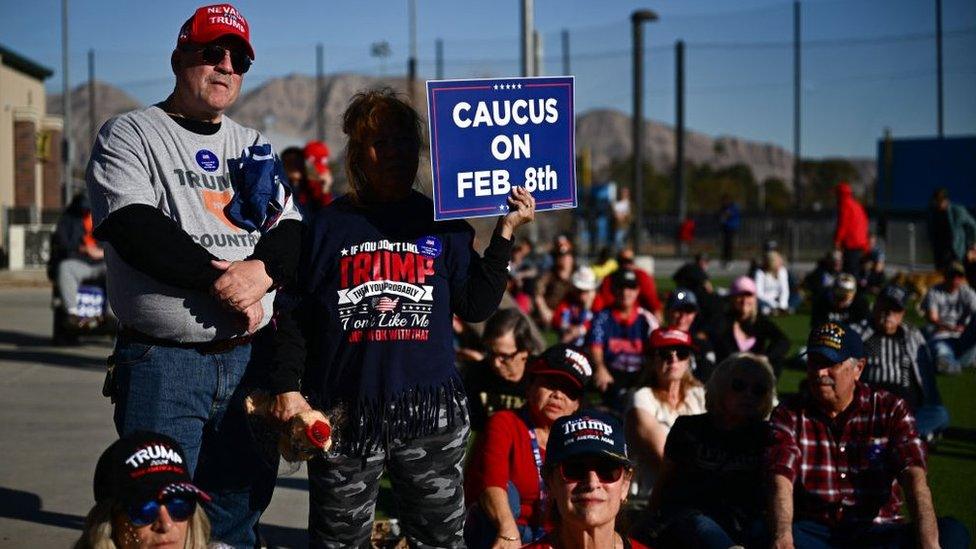
Nevada is holding a primary and caucus in its Republican contest for the presidential nomination.
Against a backdrop of neon lights and the clink of casino chips, the Nevada caucuses were once a colourful and important stop in the race to become the presidential nominee.
But there are no such thrills for Republicans this year.
A dispute over how presidential candidates should be selected in the state has turned past electoral excitement into mass voter confusion. This week there will be two separate votes in the Republican contest.
That means Donald Trump and Nikki Haley, the two major candidates still in the Republican race, will each compete in Nevada without even appearing on the same ballot.
"It's a very confusing mess for a lot of voters, a lot of analysts, and for pretty much anyone," said Jon Ralston, a political commentator and the editor of the Nevada Independent.
The situation has come about because of the two different voting systems in the US, caucuses and primaries, and a clash between the Nevada Republican Party and the state government.
In caucuses people gather at events, hold debates, and then vote on their preferred presidential candidate - sometimes by a show of hands.
Primaries are a more traditional style of voting where people cast a ballot at polling stations.
Nevada has had a caucus for decades. However, after the 2020 results faced delays over the vote count, Democratic lawmakers in the state passed legislation to switch the caucuses to a primary.
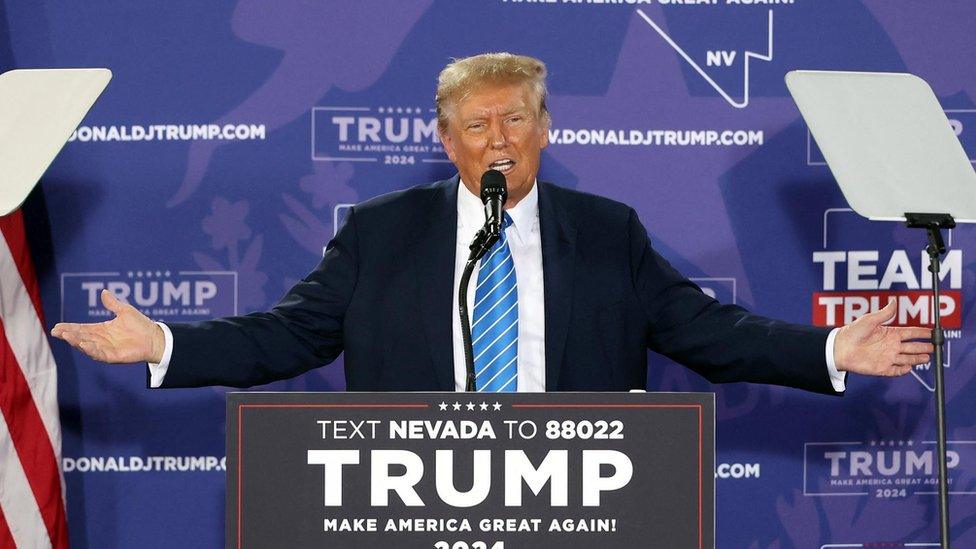
The Trump campaign is telling voters to vote against Nikki Haley in the primary and participate in the caucus two days later.
The state Republican Party opposed the change and tried through the courts to have the primary stopped, but that was unsuccessful.
So the party decided to hold caucuses anyway and to award its 26 state delegates to the winner. Presidential candidates need to win a majority of the 2,429 Republican delegates to secure the nomination.
Mr Ralston said that Trump supporters in the party see caucuses as more advantageous than a primary, because they attract more engaged voters and could give Mr Trump the best chance of winning with big numbers.
But that means on Tuesday Nevada will hold its primary without Mr Trump on the ballot. Two days later the state party will hold caucuses without Ms Haley.
"They gerry-rigged this," Mr Ralston said of state Republicans, "but it's blown up in their face."
The BBC has contacted the Nevada Republican Party but has not received a response.
The Trump campaign and state party officials are now worried that there could be low turnout for the caucuses. Because voters can cast ballots in both contests, Mr Trump's supporters are working to convince people to vote for "none of the above" in the primary and then attend the caucuses.
"But it's hard for me to believe that the average person wants to go caucus, after they've cast a ballot in primary," Mr Ralston said.
This means each candidate could win a Nevada contest and declare victory, even though people have not had the chance to choose between them.
Nevada's Republican governor, Joe Lombardo, has called the situation "unacceptable for voters".
It is unclear whether the situation will resolve before future contests, or if the Republican Party will continue to demand a caucus. But it has caused candidates to pass up serious campaigning there.
As one of the first states to share its preference for president during the US election season, Nevada brought its glitz, glamour, and significant sway to the American democratic process in past years.
Barack Obama strode among poker tables and fruit machines doing some last minute campaigning in 2008, as workers on the Las Vegas strip were give special permission by the courts to cast their ballots inside casinos.
Even Nevada's notorious Moonlite BunnyRanch - a licensed brothel - previously got in on the action, endorsing candidates with "Pimpin' for Paul" in 2012 and "Hookers 4 Hillary" in 2016.
This year, there is no brothel-based alliteration to be shared, as the proprietors decided to stick this one out.
The focus of the presidential race has already moved to South Carolina where Ms Haley and Mr Trump will next compete on 24 February.
It seems that the once important Nevada contest is proving rather a turn off.
- Published15 April 2024
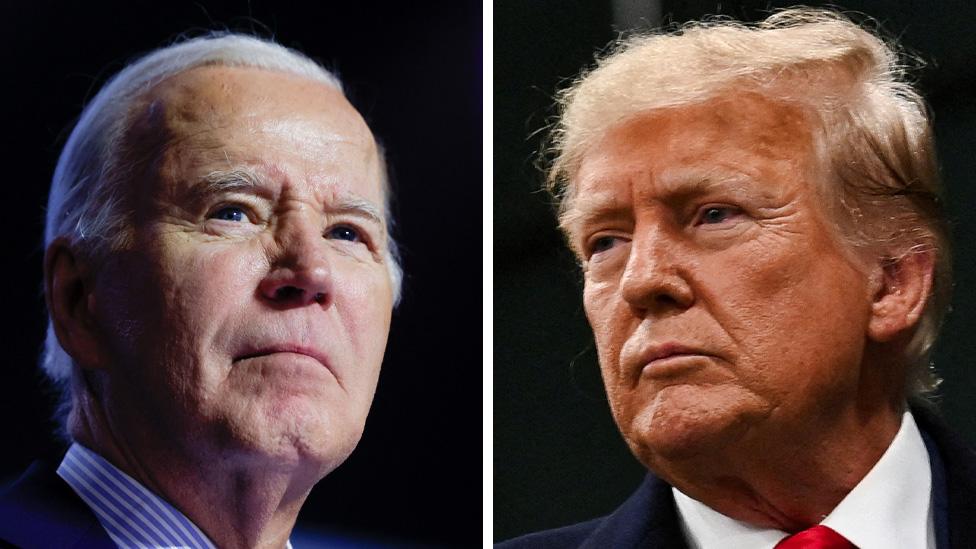
- Published4 February 2024
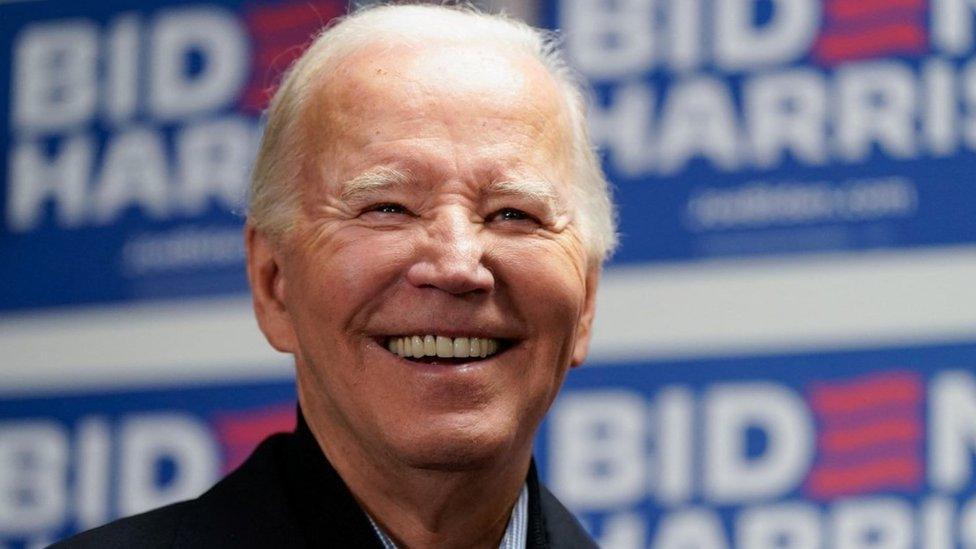
- Published24 January 2024
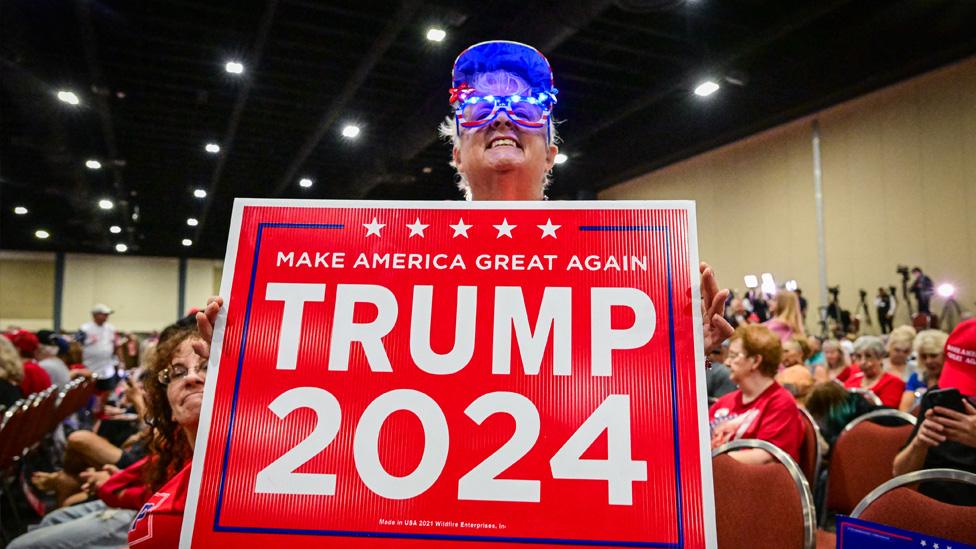
- Published19 January 2024
